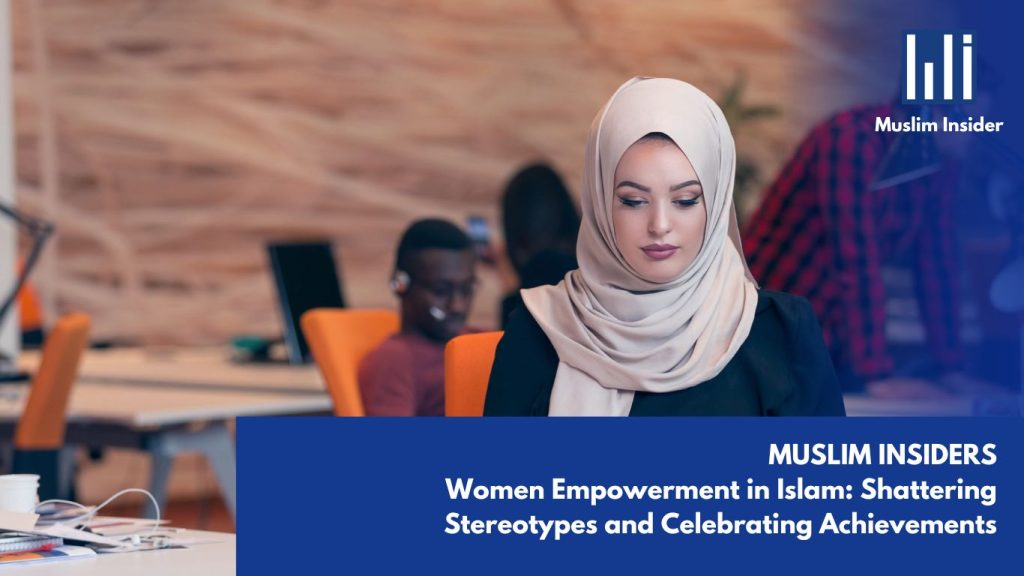

In the modern world, discussions surrounding gender equality and women’s empowerment have become pivotal for social progress. Islam, as a global faith with over a billion followers, has its perspectives on the role and rights of women. Unfortunately, stereotypes and misconceptions about Muslim women often overshadow the significant strides they have made in various spheres of life. This article seeks to shed light on the concept of women empowerment in Islam, showcasing the accomplishments of Muslim women and how the religion’s teachings foster their rights and opportunities.
Women in Early Islamic History
The early history of Islam is replete with inspiring examples of empowered Muslim women. One such remarkable figure is Khadijah bint Khuwaylid, the first wife of the Prophet Muhammad (peace be upon him). Khadijah was a successful businesswoman who played an essential role in supporting and guiding the Prophet during the early years of Islam. Her entrepreneurial skills and unwavering support exemplify how Islam has historically recognized women’s abilities and contributions.
Education and Knowledge
Contrary to popular misconceptions, Islam emphasizes education for both men and women. The Prophet Muhammad (peace be upon him) explicitly encouraged seeking knowledge, stating that “the seeking of knowledge is obligatory for every Muslim.” Throughout history, Muslim women have excelled in various fields, including literature, science, and medicine. The achievements of scholars like Fatima al-Fihri, who founded the world’s oldest university, the University of Al-Qarawiyyin in Fez, Morocco, is a testament to Islam’s endorsement of female education.
Economic Empowerment
Islam recognizes women’s right to property and economic independence. Muslim women have historically been involved in trade and business, following the example of the Prophet’s wife, Aisha bint Abi Bakr, who was known for her financial acumen. Shariah-compliant financial systems also protect women’s rights, offering inheritance laws that ensure fair distribution of wealth, providing financial security to widows and daughters.

Leadership and Governance
Islamic history showcases female leaders who governed with wisdom and prowess. The most prominent example is Queen Arwa al-Sulayhi, who ruled the Yemeni Kingdom of the Sulayhids in the 11th century. Her reign brought prosperity and stability to the region, defying gender norms prevalent at the time. This exemplifies how Islam promotes the idea of capable women assuming positions of authority and influence.

Modern Contributions of Muslim Women
In contemporary times, Muslim women continue to make significant contributions across diverse fields. From Nobel Prize-winning physicist Nergis Mavalvala to Nobel Peace Prize laureate Malala Yousafzai, these trailblazers represent a new generation of empowered Muslim women. They break barriers and stereotypes, proving that Islam’s teachings are compatible with modern aspirations and accomplishments.
The Right to Choose
Critics often point to Muslim women’s attire as a symbol of oppression, but it is essential to understand that wearing the hijab or other forms of modest dress is a personal choice for many Muslim women. In fact, Islam upholds the concept of individual agency and free will. The Quran acknowledges the importance of modesty for both men and women, promoting the idea of inner strength and character over outward appearance.
Empowerment through Faith
For many Muslim women, their faith serves as a source of empowerment, providing a sense of purpose, strength, and identity. Islam encourages men and women to be partners in faith, with equal spiritual responsibilities. By connecting with their faith, Muslim women find the courage and determination to pursue their aspirations while maintaining their values and ethics.
The portrayal of Muslim women as oppressed and marginalized contradicts the reality of their achievements and contributions to society. Throughout history and in modern times, Muslim women have defied stereotypes, excelling in various fields and breaking barriers. Islam, as a faith, promotes gender equality, education, and economic independence for women. It empowers them to lead, serve, and thrive in their communities. By celebrating the achievements and diverse roles of Muslim women, we can challenge misconceptions and promote a more accurate and positive narrative of women empowerment in Islam.

Muslim Insiders is a dynamic organization dedicated to empowering the ideals of the Muslim economy and community, fostering growth and prosperity.
Contact Info
- 8, 8A, 10 & 10(A) D9 Commercial Park, Jalan U8/N, Seksyen U8, Bukit Jelutong, 40150, Shah Alam, Selangor.
- 019-777 2180
- enquiry@musliminsiders.com
Copyright © 2023 Muslim Insiders. All rights reserved.





